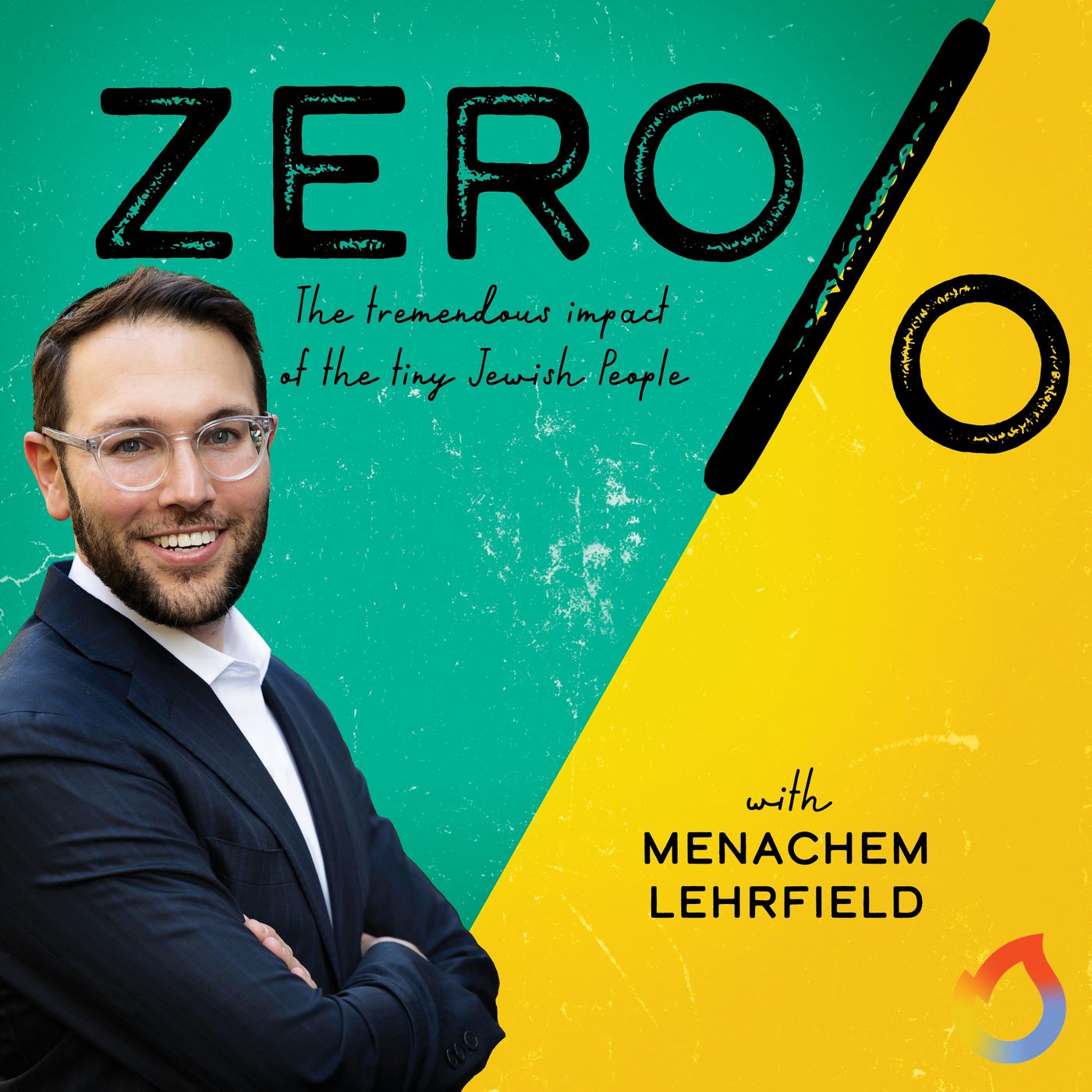15- The Gift of Childhood
Description
In this episode we continue our discussion about Jewish lifecycles with a spotlight on the Bris Millah.
Episode transcript:
Hey everybody, I'm Menachem Lehrfield. Welcome back to Zero Percent. We're in the middle of talking about how we see the growth mindsets and the way Judaism marks lifecycle events. So the first stop on our Jewish lifecycle journey is probably the bris milah or the brit milah. This is the oldest Jewish ritual dating all the way back to our patriarch, Abraham, Abraham Avinu, and in the words of the mohel from the famous Seinfeld episode.
This is a bris, a sacred ancient ceremony, symbolizing the covenant between God and Abraham, or something.
Today, I want to talk about that something. What is the bris and why do we do it? If man was meant to be circumcised, wouldn't God just make us that way? Why create us in a way that we need this procedure done in order to fix what seems like God's mistake? We know that He can make a creature without requiring circumcision, he made women.
I just got back maybe two weeks ago from the bris of my nephew and my brother-in-law was telling me that a few weeks before the baby was born, my niece, the older sister of the baby who had the bris, didn't know if the baby was going to be a boy or a girl. She said to her father, she said to my brother-in-law, "Are we going to have a bris when the baby's born?" So my brother-in-law said, "Well, it depends. If it's a boy, then we'll have a bris. If it's a girl, then we won't."
She looked at him, stunned and said, "Well, why won't you have a bris for a girl?" And he began going through a complicated anatomy lesson for a seven year old, which I think went way over her head and freaked her out just a little bit. Leaving the anatomy aside, why don't girls need a bris? Why would God have created us in a way that boys do need a bris but girls don't?
The Talmud records dialogue between the evil Roman general Turnus Rufus and the great sage Rabbi Akiva. Rabbi Akiva by the way, was eventually killed brutally by the Romans for teaching and studying the Torah, we'll probably get to that story in a future episode. But here he comes to Rabbi Akiva and he asks him, "Whose deeds are more beautiful, God's or man's?"
He was obviously expecting that Rabbi Akiva, who's a rabbi and a God-fearing Jew, would say, "Obviously what God does is better than what man does." To which he was trying to catch Rabbi Akiva in a trap and say, "Well, if God's actions are greater than man's, so then why wouldn't you leave baby boys the way they are, the way God made them? Why would you change them?" Which reminds me of a line from Duante Culpepper. He was explaining to somebody why he smokes weed. And again, this is not in any way an endorsement of doing drugs or drinking alcohol, but someone asked him why he smokes weed. And he said, "Well, it's quite simple, man made booze, God made weed. Who do you trust?" One would think that if God made it, it must be perfect.
So the evil Roman general, asked Rabbi Akiva, "Whose deeds are better, whose deeds are more beautiful, God's or Man's?" Rabbi Akiva obviously understood where Turnus Rufus was going with this and in response, he brought him bread, rolls of bread, and he brought him some stalk of wheat. He said to him, "The stalks of wheat are the work of God. But these baked rolls, this bread, this is the work of people. Aren't the rolls better than the wheat?" As if to say, "Well, obviously God made the wheat, but God didn't make the wheat for us to eat plain wheat." He made the wheat, but he also gave us the intellect and the ability to take that wheat and transform it into delicious bread. I don't know about you, but there is nothing I would rather eat than to delicious, warm bread. I've never really tried chewing on raw wheat.
The ritual of circumcision represents the idea and the awareness that God made...
More Episodes
Published 04/21/24
Published 04/19/24
Published 04/19/24


